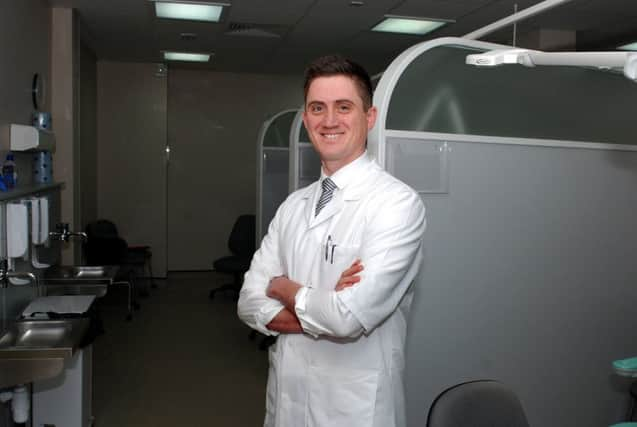Expert spends a year listening to blood flowing through legs to help diagnose stroke


It is hard to imagine that the sound of blood flowing through your legs could indicate whether you might be at risk of a stroke or heart attack.
But a University of Huddersfield expert has been awarded a research grant that will enable him to build up a digital library of the different foot and leg artery sounds recorded during the Doppler ultrasound procedure. It will become an important, widely available aid, boosting and refreshing knowledge gained by clinicians during their training.
Advertisement
Hide AdAdvertisement
Hide AdAndrew Sharpe is a podiatrist who obtained his qualifications at the university, where he is now a Lecturer Practitioner.
The Doppler device is portable, non-invasive, quick and relatively cheap way of assessing limb arterial disease, known to be a precursor to cardiovascular disease such as heart attack and stroke, of which the first symptoms could be leg pain.
But a lack of accuracy, reliability or confidence on the part of medics can falsely reassure patients that there is no disease present, so that they miss out on potentially life-saving treatment. Mr Sharpe said that the clinician was listening for three basic sounds, known as tri-phasing, bi-phasing and mono-phasing. In a healthy artery there would be both backward and forward blood flow. As an artery reduces with age, there will be a forward flow with a slight back flow. But if a single flow is detected, then that signifies a real reduction and the possibility of cardio-vascular problems.
“The issue that users face is the distinction between a clear double sound and a flat single sound. You are listening for that extra blip and it is down to whether you pick it up,” said Mr Sharpe, The Urgo Foundation, which funds innovative medical research, has granted Mr Sharpe £10,000 for a 12-month project which will see him compile recordings of dozens of foot and leg scan sounds – plus sounds from the groin and behind the knee.
Advertisement
Hide AdAdvertisement
Hide AdHe will then select the best and most representative sounds and hold discussions with expert clinicians on how to interpret them. Case histories accompanying each sound will form part of his digital library, which will be obtainable via the web. It is also planned to develop a smartphone app. Mr Sharpe will obtain the sounds from his NHS practice and will also work with the Royal Liverpool Vascular Laboratory.